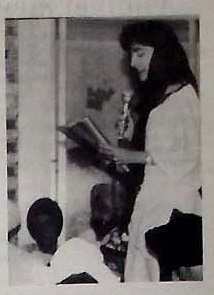
By Rupinder Kaur Chatha
Historical accounts of Guru Nanak Dev Ji’s life, together with the Gurbani composed by him, demonstrate that Guru Nanak held an abiding faith in the ‘equality of all mankind. Through both words and actions, he rejected all discriminations based upon caste, economic status, religion and gender.
Guru Nanak started speaking against discrimination and bigotry during the early period of his life, when he was eleven years old, ‘Nanak refused to accept the janeau (the Hindu sacred thread) as a symbol of his membership to an upper caste. He asserted that real superiority cannot be marked by a sacred thread but by the practice of virtues like compassion, contentment, and thoughtfulness, and these virtues can be equally attained by persons of all castes and classes.
In addition to demonstrating the illogicality of inequality based on birth, at times Guru Nanak proved the moral equality or even superiority of the poor. One such incident is recorded in the account of the Guru’s stay at Sayyad pur. When he and Mardana stopped there for rest, they stayed ‘at the home of lowly carpenter Lalo, although a rich man of high caste, Malik Bhago, had also invited them, Furthermore, Nanak showed preference for Lalo’s food. He explained his preference by holding the bread from Lalo’s home in one hand and the bread from Malik’s home in the other and then squeezed both hands simultaneously. ‘Then, as milk dropped from Lalo’s bread and blood from Malik’, Nanak explained to the amazed onlookers that it was so because Talo had earned his bread through honesty but Malik Had gotten his through treachery and exploitation.
Beyond the caste and economic status, Guru Nanak’s conviction of the equality of mankind transcended religious beliefs. This is most visibly exemplified through his choice of companions and dress. ‘On many of his journeys, the Guru was accompanied by Bala, a Hindu, and Mardana, a Muslim, ‘On these journeys, he often wore an outfit that combined the Hindu and Moslem attire. When asked to tell which of the two—a Hindu or a Muslim—was better, Nanak replied, “He who doeth good and liveth in God”. To discourage claims of superiority by religious affiliation, Nanak advised his followers to regard all men as equal because “God’s light is contained in the heart of each”,
While he was proclaiming the equality of all, Guru Nanak did not ignore women. Much against the contemporary trend, Guru Nanak made daring statement about the folly of treating women as inferior to men:
….from the woman is the family, yea, through the woman are our bonds with the world. Why call woman evil who giveth birth to kings and all? From the womanis the woman, without the woman there is none, save the one God alone.
In the same vein, he encouraged women’s wearing of the veil and insisted that women be served langar alongside with men.
By thus placing women on equal footing with men, rejecting the symbols of high caste, maintaining simultaneous companionships with a Hindu and a Muslim, befriending the poor like Lalo, and above all, by making repeated statements about honor as a virtue to be acquired through high birth and symbolized by the wearing of sacred symbols, Guru Nanak showed an unfaltering commitment to his belief in the equality of all mankind. This great belief has continued to inspire spiritual strength and magnanimity of conduct in the Sikhs.
* This essay was awarded first prize in the Essay contest sponsored by Sikh Council of North America. Ruperinder Kauristhe daughter of Prof. Pritpal Singh Chatha and Prof. Daljit Kaur Chatha. She is presently studying medicine at UT., Arlington, Texas.
Article extracted from this publication >> November 6, 1987